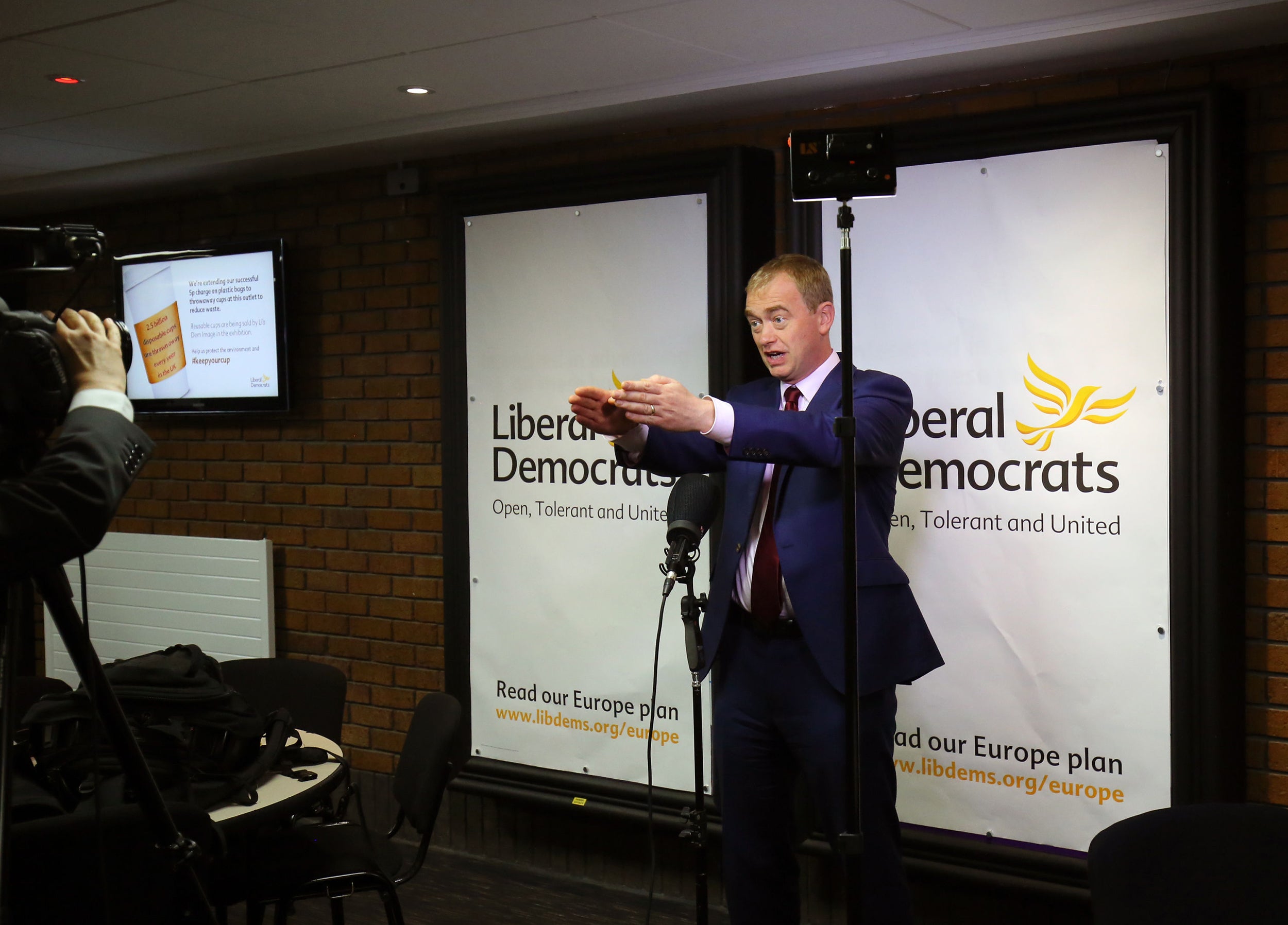Lib Dems divided over second referendum
Party leader Tim Farron makes second referendum on terms of Brexit his party’s central policy - but Vince Cable and Paddy Ashdown appear to disagree

Your support helps us to tell the story
From reproductive rights to climate change to Big Tech, The Independent is on the ground when the story is developing. Whether it's investigating the financials of Elon Musk's pro-Trump PAC or producing our latest documentary, 'The A Word', which shines a light on the American women fighting for reproductive rights, we know how important it is to parse out the facts from the messaging.
At such a critical moment in US history, we need reporters on the ground. Your donation allows us to keep sending journalists to speak to both sides of the story.
The Independent is trusted by Americans across the entire political spectrum. And unlike many other quality news outlets, we choose not to lock Americans out of our reporting and analysis with paywalls. We believe quality journalism should be available to everyone, paid for by those who can afford it.
Your support makes all the difference.Senior Liberal Democrats are divided on the question of whether a second referendum must be held on the terms of Britain’s Brexit deal.
Leader Tim Farron has made a second referendum on EU membership his party’s central promise as it seeks to mount a fightback based on attracting to Remain voters, a policy supported by the party’s Brexit spokesperson Nick Clegg
But at the Liberal Democrat conference in Brighton, Vince Cable and Paddy Ashdown have both said the party must accept that the country has voted to leave the EU, with Cable warning of the risks of holding another vote.
“The second referendum raises a lot of fundamental problems,” Mr Cable said. “What happens if you win? Is that binding? Do you have to do a third? Which side would we be on if there was a soft Brexit, would we support Theresa May or would we be with Nigel Farage voting it down? I don’t think the second referendum is a panacea to anything.”
Paddy Ashdown told reporters that the referendum had “put the issue to bed”.
“The Lib Dem position remains that given a choice between in and out we’d like to go back in but we don’t have that choice because the British people have spoken,” the former leader told reporters. “If it has to be out, then it’s as close to Europe as possible. But we accept that judgement. If a second referendum was called we wouldn’t abandon a position we held for forty years.
“We are not abandoning our position that Britain is better off inside as that choice is not in front of us. The referendum put that to bed. Who knows, sometime in the future, it may come back.”
But Nick Clegg told a fringe meeting on Europe that a referendum on the terms of Brexit would, in fact, be the first referendum on the matter.
“The key thing to tell people is that if the Brexiteers had bothered to tell people what Brexit meant, there would be no case for any more referendums,” he said. “Because they would have both the mandate to pull us out of the European Union, and they would have the mandate for how to. Over 17 million people voted to Leave. We accept that without question. We are certainly not advocating a second referendum. We are advocating a first referendum on what the actual terms of departure are. That’s a perfectly reasonable thing to say.”
The Liberal Democrats lost 48 seats at the 2015 general election, taking their number down to eight. They hope that taking an unashamedly pro-Europe stance could turn their fortunes around, but the UK is likely to have left the EU entirely by the time of the next election, which is scheduled for 2020, and will almost certainly not be permitted to rejoin on the same beneficial terms it currently has.
Join our commenting forum
Join thought-provoking conversations, follow other Independent readers and see their replies
Comments